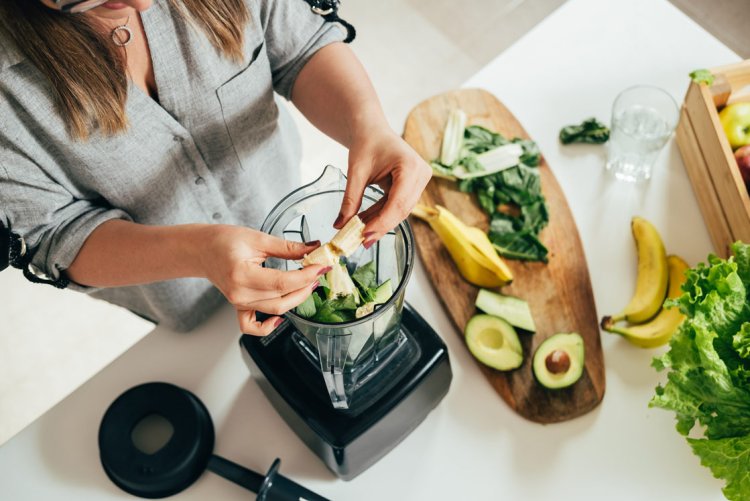Can What You Eat Really Affect Your Fertility? Here’s What Science Says
It’s a tempting idea: that your dinner plate tonight could be your first step toward parenthood. But before you start loading up on leafy greens and salmon in the hopes of instant fertility magic, let’s unpack the latest research causing such a stir in the reproductive health world.

The new research on fertility and diet
A team from the Harvard T.H. Chan School of Public Health and Harvard Medical School recently reviewed dozens of studies exploring how diet affects fertility. Their findings were both fascinating and surprisingly grounded, not miracle claims, but meaningful clues.
For women trying to conceive naturally (without the help of IVF or other assisted reproductive technologies), certain nutrients stood out as fertility boosters:
Folic acid
Vitamin B12
Omega-3 fatty acids
Healthy diets, especially the Mediterranean diet, rich in vegetables, lean proteins, and healthy fats
:max_bytes(150000):strip_icc()/ultimate-mediterranean-diet-shopping-list-3-e664ec965df04744967b979dd5be3fbb.jpg)
Meanwhile, some usual suspects antioxidants, vitamin D, dairy, soy, caffeine, and alcohol didn’t show much measurable impact either way. What did appear harmful were trans fats and “unhealthy diets” full of processed meats, refined carbs, sweets, and sugary drinks.
For men, the story is similar: those with diets abundant in fruits, vegetables, and lean proteins tended to have better semen quality, while diets high in saturated fats showed the opposite. Still, scientists caution that semen quality doesn’t always translate directly to fertility outcomes.
Among couples undergoing fertility treatments, women seemed to benefit from folic acid supplements or isoflavone-rich diets (plant-based compounds with antioxidant properties), and men showed potential improvements with antioxidant use.
What this means if you’re trying to conceive
The message isn’t revolutionary but it’s important. A healthy, nutrient-dense diet matters, for both partners. Supplements like folic acid and vitamin B12 can provide extra insurance, but they’re not a magic bullet; they’re part of a bigger picture that includes lifestyle, genetics, and timing.
Doctors have long recommended prenatal vitamins for women trying to conceive because folic acid reduces the risk of neural tube defects in developing babies. Adding omega-3 fatty acids (from fish or plant sources) may also support hormonal balance and egg health.
So while there’s no single “fertility diet,” the takeaway is clear: eating well supports your reproductive system just as it supports every other part of your body.
The lingering questions
Of course, as with any area of nutrition science, the more we know, the more questions emerge:
How much folic acid or B12 is ideal for fertility?
Is it better to get nutrients from supplements or whole foods?

What’s the safest way to eat fish for omega-3s without risking mercury exposure?
And are there specific groups like those with PCOS or endometriosis who might benefit more from targeted dietary approaches?
Researchers are still digging into these nuances, but other recent studies are starting to connect more dots:
Sugary drinks, particularly sodas and energy drinks, were linked to lower fertility in both men and women.
Women who ate more fast food and fewer fruits took longer to get pregnant.
Couples who ate seafood regularly conceived faster than those who rarely did though most pregnant women still eat far less than the recommended 2–3 servings of low-mercury fish (like salmon, scallops, and shrimp) each week.
The realistic takeaway
Until the science gets sharper, the best fertility advice is surprisingly simple and refreshingly familiar:
Eat a balanced diet emphasizing fruits, vegetables, whole grains, healthy fats, and lean proteins.
Take a prenatal vitamin daily if you’re trying to conceive, ideally starting at least one month before.
Maintaining a healthy weight obesity can affect ovulation and increase pregnancy complications.
Avoid megadoses of vitamins, especially vitamin A, which can harm a developing fetus.
Schedule a preconception visit with your doctor to review medications, lifestyle factors, and specific health goals.
Ultimately, food isn’t fertility magic but it is one of the most powerful ways to nurture your body for the journey ahead. Your plate can’t guarantee pregnancy, but it can help create the healthiest foundation possible for when that time comes.
What's Your Reaction?




















